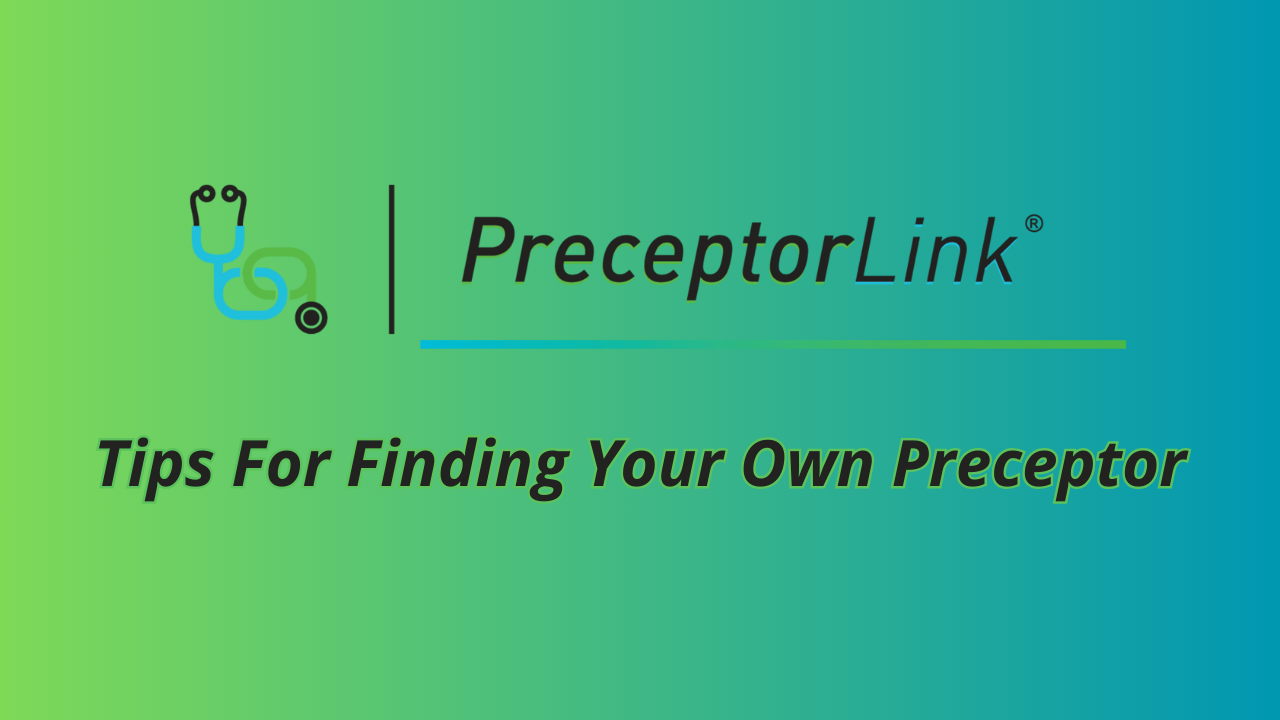|
Ah, the age-old quest to find ways to annoy your clinical preceptor - a noble endeavor indeed! While I don't condone such behavior, this is a REAL list of things that preceptors have reported. Granted, most students are not like this. Most are great, but you may see some of these things if you precept enough students! Please avoid these things so you don’t drive your clinical preceptor to the brink of madness.
1. Arrive Fashionably Late. Show up to your clinical rotation 10, 15, or even 30 minutes late every day. After all, who needs punctuality in the medical field? Your preceptor will be thrilled to start their day with the delightful surprise of your tardiness. 2. Dress to Impress... the Wrong Way! Forget about wearing professional attire; opt for something more whimsical. A Hawaiian shirt and flip-flops combo will surely make a memorable impression. Plunging neckline or mini-skirt will be sure to keep patients attentive and cause a stir with the office staff! 3. Question Everything. Never miss an opportunity to question your preceptor's orders, diagnoses, or treatment plans. Make sure to do it loudly and in front of the entire medical team for maximum impact. And don’t forget the eye-roll or dismissive comment. 4. Interrupt, Interrupt, Interrupt. Don't let anyone finish a sentence, especially your preceptor. Jump in with your thoughts, irrelevant anecdotes, or the latest trending meme. Conversation skills are overrated, anyway. 5. Google It All. Why rely on your preceptor's extensive medical knowledge when you have Google at your fingertips? Constantly fact-check them during rounds, citing the first search result you find. 6. Never Take Notes. Who has time for jotting down important information? Just wing it and rely on your photographic memory (if you have one). Your preceptor will be in awe of your abilities… or not. 7. Overshare Personal Details. Ensure your preceptor knows your entire life story, from your pet hamster's dental problems to your Aunt Martha's knitting hobby. They'll appreciate the diversion from actual medical work. 8. Forget About Hygiene. Personal hygiene is for the weak. Show up smelling like a dumpster on a hot summer day, and you'll be unforgettable, albeit not in a good way. 9. Take Really Long Lunch Breaks. Lunchtime is for napping or making TikTok videos, not for discussing cases or learning from your preceptor. Take excessively long lunch breaks. Come back late again. 10. Constantly Complain. Complain about everything - the workload, the hours, the patients, the drive, the coffee in the break room, and the fact that you have to wear pants. Your preceptor will surely admire your positivity. 11. Disdain Their Patient Population. For your peds (or whatever) rotation, mention that you "hate peds and are only doing this rotation to check off the box.” This will really motivate your preceptor to teach you about his/her passion and profession! Okay, we hope this is more funny than truthful to you! Obviously, it's crucial to maintain professionalism and respect when working with clinical preceptors and colleagues. Building a good relationship with your preceptor is essential for your education and future career, so be sure to demonstrate your dedication and commitment in a positive and respectful manner. Who knows, they might provide a good reference or be on the other side of the interview table someday. Stay tuned! Next, we’ll flip this topic on its head and talk about things that Preceptors do that make life particularly hard on students!
0 Comments
Hi everyone, it's Lynn McComas, DNP, ANP-C, the nurse practitioner owner of PreceptorLink®. In this video, I will provide you with tips and suggestions on how to find your own preceptor for your rotations. I will discuss the importance of knowing your school's requirements, creating a well-written cover letter and resume, networking opportunities, affiliations with hospitals, and being persistent in your search. If you want us to take the preceptor search off your shoulders, we are happy to help! Please reach out to us at www.preceptorlink.com. Keep on learning! 00:00 Introduction 00:19 Knowing School Requirements 00:58 Creating a Cover Letter and Resume 02:09 Networking Opportunities 02:33 Joining Professional NP Associations 03:29 Utilizing Facebook Groups 03:53 Affiliations with Hospitals 04:59 Pounding The Pavement 05:52 Be Open To Travelling 07:11 Persistence Pays Over the last two years, nurse practitioners, PAs, and doctors have been on the frontline of treating patients during the COVID-19 pandemic along with nurses, social workers, and other healthcare workers. The stress of the pandemic combined with high patient expectations and oftentimes low workplace support has led to burnout among many healthcare workers. The AMA reports 49% of physicians experienced burnout at the end of 2020. In February 2021, a report by the Journal of Nurse Practitioners recorded the rate of burnout of Primary Care Provider Nurse Practitioners at 22.6% to 25.1%. Those working in ICU and ER settings are feeling the stress even more.
If you’re experiencing exhaustion and other signs of burnout, you are not alone. We can’t control the number of patients who enter your clinics each day, but we can help you find ways to help create a work-life balance. Your mental and physical health affects the quality of care you offer your patients and your family. To help, we asked providers how they create more balance in their lives. Here’s what we found: ▶ Even though you are busy in the hospital or clinic, try to stay well hydrated, particularly with water. Even mild dehydration can affect you mentally and physically. And, along that line, don’t hold it too long! ▶ Find exercise in everyday activities: park further away from the building, take the stairs, do squats to pick up items from the floor, do curls with the laundry detergent, etc. ▶ The best time of day to exercise is whenever you can do so consistently, but studies show that exercising first thing in the morning can increase the chances that you will maintain an exercise program because morning workouts leave less room for excuses. Plus morning workouts can help you sleep better at night. But do whatever you can maintain consistently. ▶ Set a reminder on your phone or computer to remind you to exercise. (Hello, lunges down your hallway!) ▶ Find a workout buddy. ▶ Speed walk around the inside of the clinic or outside every hour or two. ▶ Hire administrative help at work or home or housekeeping or chore help at home if possible. ▶ Use dot phrases to cut down on charting time. This can make a big difference in charting time! Put in the time up-front to save you time down the line. ▶ Learn to leave work at a set time even if all the charting isn't finished. ▶ Work part-time for a while if you're feeling burned out. It’s not always possible, but if it is, it can really help. ▶ Schedule your work for four 10-hour days to get an "extra" day off. ▶ Prep meals so you have lunch ready and don't snack on junk all day. Think about or plan your meals for the week ahead of time so you know what to buy and when 5:00 pm rolls around, you know what’s for dinner. ▶ Avoid time wasters. Your time is valuable. ▶ Find ways to exit long, unproductive conversations with patients and co-workers. Some tips when precepting: 📌If you have students, allow them to chart the note, and then you review it, make any changes, and sign off. This is legal and can improve efficiency when precepting. 📌Have students make call backs and follow-ups when you are in ear-shot and can concur with their comments/advice. It’s good practice for students and can help providers save some time. Provider and student should both sign off on correspondence. What creative steps have you taken to create more work-life balance and reduce burn out? |
About Lynn:As a longtime NP with a desire to help and make positive changes to her beloved profession, Lynn often writes opinion pieces about the NP profession. Archives
July 2024
Categories
All
"Why NPs train on the backs of physicians"
from KevinMD |
|
Jeremiah 29:11
PreceptorLink, Inc.®️ All rights reserved. Website Design by WCW Designs
|





 RSS Feed
RSS Feed

